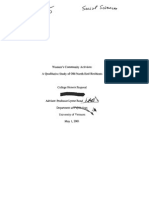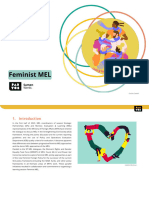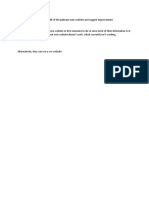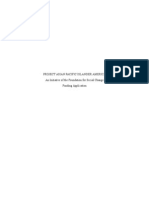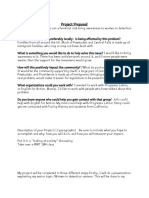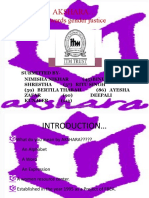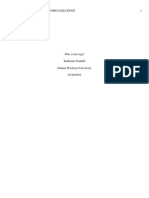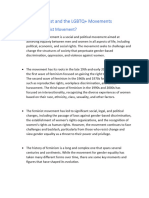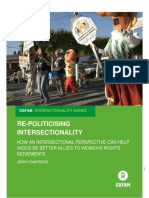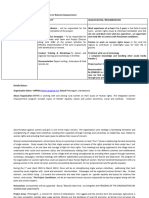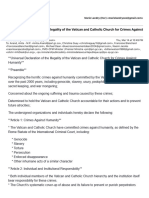0% found this document useful (0 votes)
65 views5 pagesSMT Training Assignments
The document outlines the mission and activities of Minority Women in Action (MWA), a Kenyan organization advocating for the rights of lesbian, bisexual, and queer women. It details the key issues MWA addresses, including legal discrimination, gender-based violence, healthcare disparities, economic empowerment, and mental health support. Additionally, it discusses MWA's collaborative efforts with other organizations and its theories of change aimed at achieving systemic transformation for LGBTQI individuals in Kenya.
Uploaded by
loyaCopyright
© © All Rights Reserved
We take content rights seriously. If you suspect this is your content, claim it here.
Available Formats
Download as DOCX, PDF, TXT or read online on Scribd
0% found this document useful (0 votes)
65 views5 pagesSMT Training Assignments
The document outlines the mission and activities of Minority Women in Action (MWA), a Kenyan organization advocating for the rights of lesbian, bisexual, and queer women. It details the key issues MWA addresses, including legal discrimination, gender-based violence, healthcare disparities, economic empowerment, and mental health support. Additionally, it discusses MWA's collaborative efforts with other organizations and its theories of change aimed at achieving systemic transformation for LGBTQI individuals in Kenya.
Uploaded by
loyaCopyright
© © All Rights Reserved
We take content rights seriously. If you suspect this is your content, claim it here.
Available Formats
Download as DOCX, PDF, TXT or read online on Scribd
/ 5






